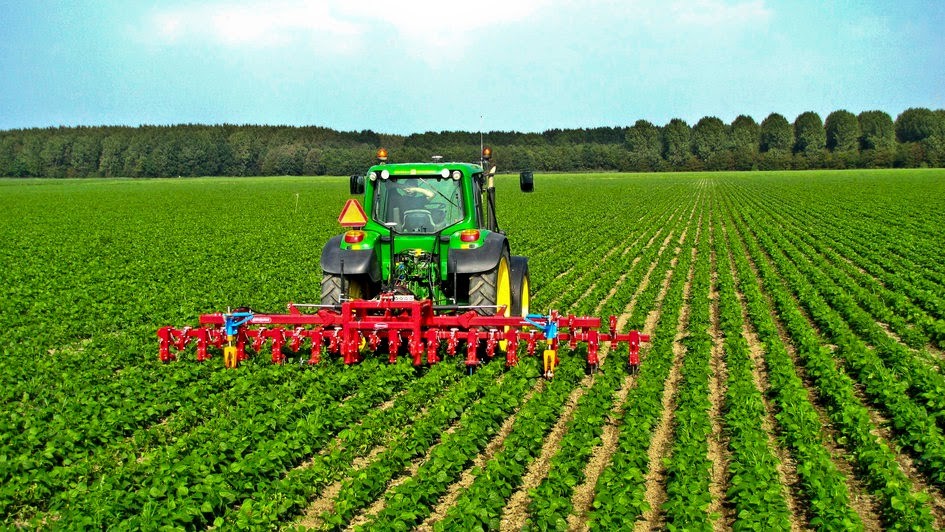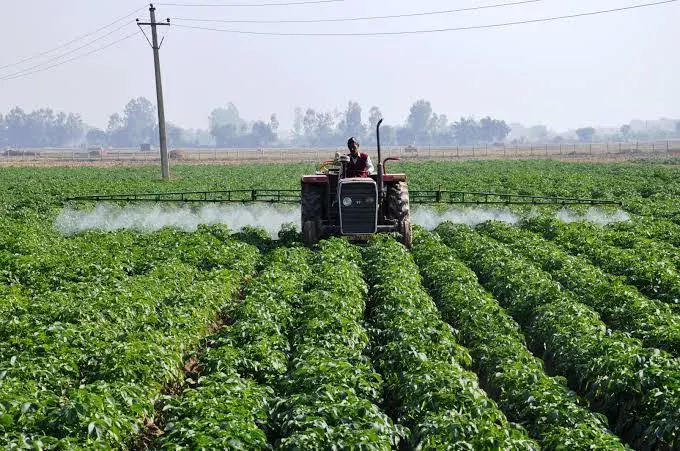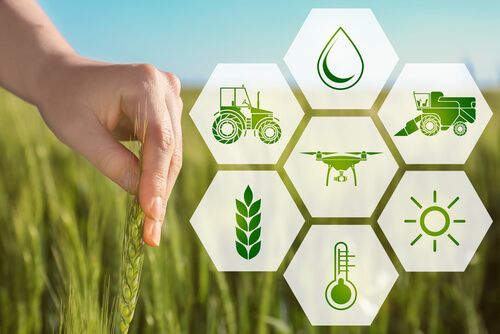In an era where sustainability and technology intersect to shape our future, agriculture stands at the forefront of significant global transformation. The field of agriculture in 2024 is not just about traditional farming; it’s about innovating and implementing practices that ensure food security and environmental stewardship for future generations. In this blog, we will explore a list of compelling reasons to study agriculture, highlighting its pivotal role in addressing pressing global challenges and shaping a more sustainable and resilient future.
Growing Demand for Sustainable Practices
The urgency for sustainable agricultural practices has never been more pronounced. With the global population on the rise, the agricultural sector is under pressure to produce more food but with fewer resources and minimal environmental impact.
Studying agriculture today means learning how to balance productivity with sustainability, ensuring that we can feed the world without depleting its resources. This challenge invites innovative minds to contribute to a crucial cause: preserving our planet while nourishing its inhabitants.
Accessibility Through Online Education
The advent of online education has democratized access to knowledge and expertise in various fields, with agriculture being no exception. Pursuing an online BS in agriculture allows students from all corners of the globe to access top-tier education without the constraints of location. This flexibility enables learners to combine their studies with practical experience in their local communities, applying theoretical knowledge to real-world agricultural challenges.
Advancements in Agricultural Technology
Agriculture is undergoing a profound transformation propelled by technological advancements. Today, students pursuing agriculture education find themselves at the forefront of innovation, delving into topics such as drone technology, biotechnology, and robotics. These advancements aren’t confined to theoretical discussions but are tangible solutions implemented in agricultural fields worldwide.
For example, Geographic Information Systems (GIS) have become indispensable tools in modern agriculture, offering intricate insights into soil composition, crop health, and environmental conditions. Another emerging concept is precision agriculture, which epitomizes the fusion of technology with farming methods. By leveraging data analytics, sensors, and automation, precision agriculture enhances efficiency and productivity.
Contribution to Global Food Security
Studying agriculture places individuals at the heart of one of the most critical challenges of our time: achieving global food security. As the population continues to grow, the need for skilled professionals who can innovate and improve food production systems becomes ever more crucial.
Students in this field learn not just about the methods of increasing crop yields but also about the importance of creating sustainable food systems that can withstand environmental changes and socio-economic challenges. Their contributions can lead to more resilient food production methods, ensuring that communities worldwide have access to the nutrition they need.
Career Diversity within the Agricultural Sector
The agricultural sector presents a broad spectrum of career opportunities, far beyond the traditional roles many might expect. From research and development, environmental science, agribusiness management, to policy advocacy, the sector is ripe with possibilities for graduates.
Students equipped with a degree in agriculture can find themselves in roles that directly impact food production and even global trade. This diversity not only highlights the sector’s importance but also its adaptability and the dynamic opportunities it offers to those willing to explore its depths.
Moreover, the agricultural sector fosters innovation, welcoming individuals with expertise in emerging fields such as agri-tech, sustainable agriculture, and agricultural economics. Beyond traditional career paths, there is a growing demand for professionals specializing in areas like food security analysis, agricultural engineering, and rural development. By diversifying skill sets and adopting interdisciplinary approaches, graduates can position themselves to drive positive change within the agricultural industry.
Revolutionizing Food Systems with Agroecology
Agroecology offers a holistic approach to food systems, combining ecological science with indigenous knowledge and social aspects. Students get to know all about agroecology principles, learning how to design and manage sustainable food systems that enhance biodiversity, regenerate ecosystems, and strengthen community resilience. This approach not only addresses food production challenges but also promotes a shift towards more sustainable and equitable food systems globally.
The Business Aspect of Agriculture
Agriculture is not just about farming; it’s also a significant global business that requires savvy individuals who understand the complexities of the agricultural market. Students of agriculture are introduced to the economic principles and business practices essential to the agricultural industry’s success. From managing a farm to navigating the global trade of agricultural products, the knowledge gained through an agricultural education provides a solid foundation for entrepreneurship and business management within the sector.
Networking and Professional Development Opportunities
Agriculture programs often provide students with numerous opportunities to network with professionals in the field, participate in internships, and engage in hands-on learning experiences.
These opportunities are invaluable for professional development, allowing students to apply their knowledge in real-world settings, build relationships with industry leaders, and gain insights into the latest trends and challenges in the agricultural sector. Such experiences enrich the educational experience and prepare students for successful careers post-graduation.
Advocacy and Policy Influence
Studying agriculture equips individuals with the knowledge to advocate for effective policies that promote sustainable farming practices and food security. Graduates can influence policy at local, national, and international levels, driving legislative changes that support the environment and equitable food distribution.
Conclusion
The decision to study agriculture in 2024 is a choice to be at the forefront of addressing some of the world’s most pressing issues, from food security and sustainability to environmental conservation. The field offers a unique combination of tradition and innovation, providing a wide range of opportunities for those passionate about making a difference.
With the advancements in technology, the importance of sustainable practices, and the global nature of the agricultural market, now is an exciting time to enter the field. Students equipped with knowledge, skills, and a holistic understanding of agriculture can look forward to not just cultivating crops, but also cultivating a sustainable future for our planet.
This path, rich with opportunities for growth, innovation, and contribution, invites the next generation of agricultural professionals to rise to the challenges of our time and shape the future of our world.













